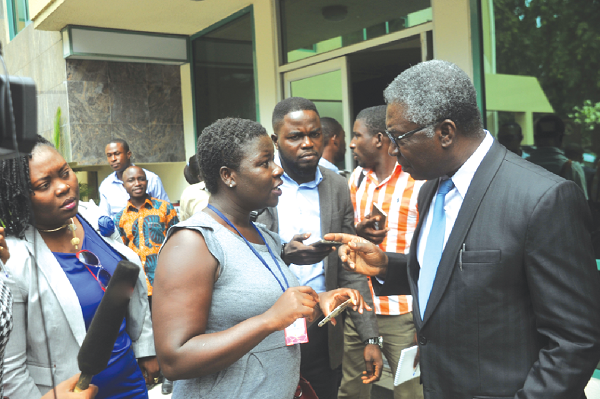Work on a $30m e-waste recycling facility at Agbogbloshie in Accra is to begin later this year.
To be known as the Agbogbloshie E-waste Recycling Facility, the project is being implemented by the Ministry of Environment, Science, Technology and Innovation (MESTI) in partnership with the Environmental Protection Agency (EPA) and two other private entities.
As a result, the EPA has entered into a contractual agreement with a multinational company, Societe General De Surveillance SA (SGS), as the designated external service provider in pursuant to Section 21 of Act 917, 2016.
Event
The Minister of MESTI, Professor Kwabena Frimpong-Boateng, made this known at a public sensitisation forum on Hazardous and Electronic Waste Control and Management Act, Act 917 in Accra yesterday.
Similar fora will be held across the country ahead of the start of the implementation of the law in October 2018.
Plant
The plant is expected to recycle electrical and electronic waste materials into final products in an environmentally sound manner. It will help to protect the people of Accra and its environs, specifically the Agbogbloshie community against toxic pollutants generated from the burning of e-waste.
Statistics from the MESTI and EPA indicate that 500 containers of electronics are imported into the country every month. Out of this, 15 per cent are e-waste on arrival while the rest gradually add up to the country’s e-waste burden with time after their useful life.
Currently, the dominant way e-waste is disposed of in the country is through burning.
The Agbogbloshie e-waste burning site has been described as one of Africa’s biggest e-waste dumpsites in recent times. It has also been cited among the top 10 most polluted sites in the world.
Law
Prof. Frimpong-Boateng said the law, among other objectives, sought to facilitate the collection of levies known as
He stated that the private international partner-SGS will use its presence in the over 200 countries where those electronic devices originated from to facilitate the collection of the levies on behalf of the government.
“SGS will retain 15 per cent of the net eco levy and remit 85 per cent on a monthly basis to the government,” the minister explained.
According to Prof. Frimpong-Boateng, “electronic waste has emerged as one of the most serious environmental challenges in Ghana and the world today.”
He said Ghana became a partner to the international convention on the disposal of e-waste in 2003 but had not been able to domesticate the provisions of the convention until 2016 when the Hazardous and Electronic Waste Control and Management Act (917) was enacted in 2016.
The acting Executive Director of the EPA, Mr John Pwamang, added that the law was to control and manage the importation of electronics and also facilitate their disposal at the end of use.
He said the act allowed Ghana to build international and local partnerships for e-waste control and management.
